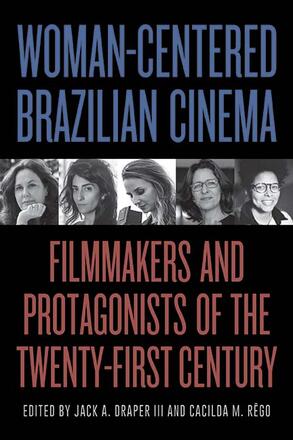
Woman-Centered Brazilian Cinema
Filmmakers and Protagonists of the Twenty-First Century
Alternative formats available from:
Illuminates the complex factors that have helped or hindered creative work by and about women in the twenty-first-century Brazilian film industry.
Description
Woman-Centered Brazilian Cinema highlights the bold, inspiring, and diverse work of female filmmakers—including directors, screenwriters, and producers—and female protagonists in the twenty-first-century Brazilian film industry. This volume examines the diverse production and distribution spaces these filmmakers are working in, including documentary, experimental, and short filmmaking, as well as commercial feature films. An intersectional approach runs throughout the chapters with complex considerations around gender, race, sexuality, and class. The book features a mix of research methods and genres, with macro-level political, economic, and industry-wide views of gender disparities appearing alongside in-depth conversations with contemporary filmmakers Maria Augusta Ramos, Petra Costa, Mari Corrêa, and Paula Sacchetta, focused on micro-level personal experiences. In bringing together original essays and interviews, the volume provides valuable information for students of Brazil in general and of Brazilian film in particular.
Jack A. Draper III is Associate Professor of Portuguese at the University of Missouri. He is the author of Saudade in Brazilian Cinema: The History of Emotion on Film and Forró and Redemptive Regionalism from the Brazilian Northeast: Popular Music in a Culture of Migration, and is translator of The Black Man in Brazilian Soccer. Cacilda M. Rêgo is Professor of Portuguese and Brazilian Cultural Studies in the Department of World Languages and Cultures at Utah State University. She is coeditor (with Carolina Rocha) of New Trends in Argentine and Brazilian Cinema and coeditor (with Marcus Brasileiro) of Migration in Lusophone Cinema.
Reviews
"The prose of the essays is readable, and the scholarly apparatus is thorough." — CHOICE
"Woman-Centered Brazilian Cinema looks beyond the white, male filmmaking canon and examines the impact of film viewing beyond the traditional cinema-going experience. Unique in its coverage, this collection makes a very significant contribution to the field." — Stephanie Dennison, author of Remapping Brazilian Film Culture in the Twenty-First Century